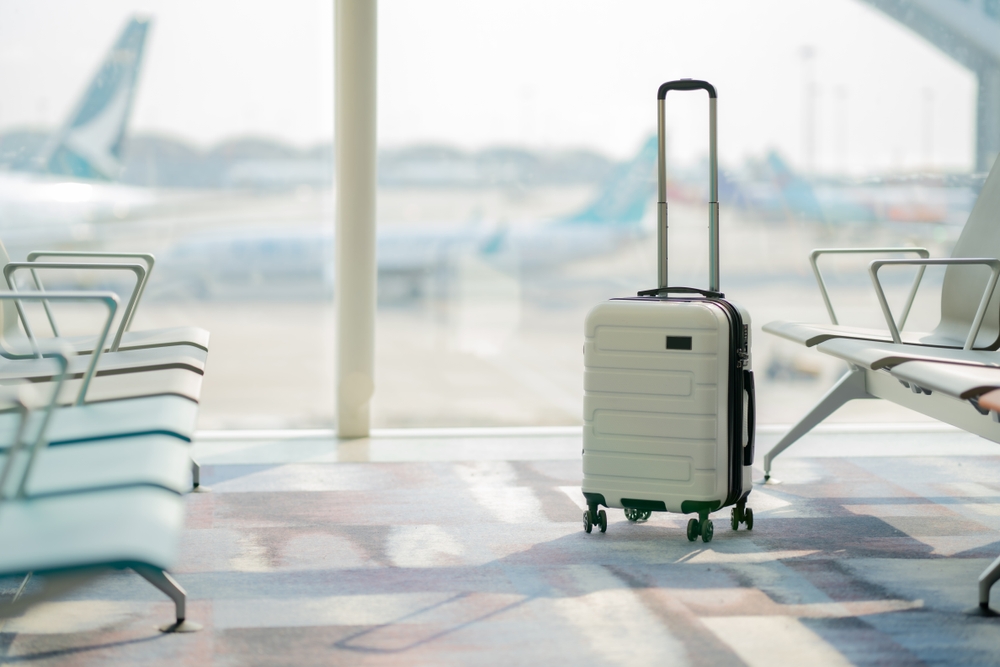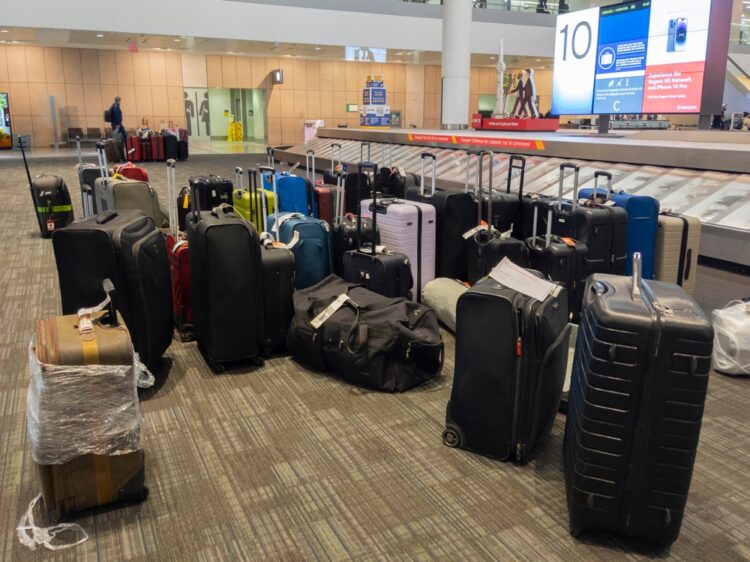Lately I’ve had a lot of bad luck with my luggage while traveling on long-haul flights. My bags were delayed three trips in a row – reaching my destination only 1 to 3 days after I had arrived. After these three consecutive luggage mishaps, I was confident the airlines could not mess up a fourth time.
They didn’t – but my bout of bad luck did not end with that fourth flight. Arriving at Paris Charles de Gaulle Airport, I was relieved to see my distinctive gray-with-orange-border suitcase appear on the luggage carousel. But while lugging it off, I noticed it was a lot heavier than when I had checked it in in Bangalore. I checked the luggage tag, only to see that it was not mine! When no other gray-with-orange-border suitcase showed up, I realized that there must have been a mix-up.
This litany of luggage mishaps came full circle a week later with another unfortunate mix-up when a fellow passenger mistakenly took my strolley from the hold of a shuttle bus on arrival at the airport!

Fortunately, despite these unlucky incidents, I was eventually reunited with my luggage each time, and since then have learned one or two things about traveling with luggage.
How can you make sure your luggage is not delayed or goes missing? You can’t. But you can cut the risk by following these helpful tips:
1. Travel light. The best way to avoid your bag being delayed or lost is to travel with hand luggage only. This is usually only possible for short 1- to 3-day trips. Make sure you carefully check the airline’s size and weight restrictions and its policy regarding liquids or you may be required to check in your bag.
2. Stand out. Black is cool but when buying luggage, choose colors that stand out so that your bag is easily identifiable. Be aware that many other people will have the same suitcase as you! Avoid a mix-up by tying a bright ribbon, handkerchief or scarf to your bag so that you can easily identify it.
3. Label it. Always attach a secure luggage tag with your name, local address, local contact number and email address to each piece of check-in and carry-on baggage. Update these details each time you take a flight and perhaps even include the date and flight number(s). Luggage tags can easily be torn off or removed, so put your contact details inside your bags too.
4. Always check the tag. Even though the bag you pull off the carousel may look just like yours, always check the name on the luggage tag. If your personal luggage tag was torn off somehow, you can find your name printed on the destination tag affixed by the airline.
5. Insure it. If you’re traveling with expensive items like laptops, tablets, and cameras, it’s a good idea to take out baggage insurance. If your bags are lost or delayed, your insurance should also cover the cost of any essential emergency purchases.
6. Lock it. Using a lock does not guarantee your luggage is tamper-proof but it does make it more difficult to open and may deter a potential thief. Beware that traveling with an unlocked suitcase could invalidate your baggage insurance. Avoid locks with keys which can be easily lost or misplaced. If traveling in the US, use a TSA-approved lock (identified by a logo of a flame or diamond) to avoid it being broken by security inspectors.
7. If it’s important, carry it with you. Avoid putting any valuables in your checked-in luggage and always carry your travel documents, cash, credit cards, jewelry, medical prescriptions and tickets for onward travel with you in your carry-on bag. It’s also a good idea to carry any essentials you need with you in case your luggage is delayed.
8. Pack carefully. Never overstuff your suitcase – this can cause it to burst open. You don’t want to find your personal belongings scattered across the luggage carousel!
9. Make a list. Always make a list of the contents of your baggage. You will need to supply these details if your luggage gets delayed or lost, and to make an insurance claim.
10. Report it. If your luggage has not appeared on the carousel by the time it stops, contact the lost luggage desk and fill in a delayed/lost luggage report. Airline staff will be able to trace your bag and tell you when you can expect to receive it. Ask about their delayed luggage policy: they may be able to immediately offer cash compensation, a kit of basic amenities, or provide a refund for any essential purchases. Make sure to keep the receipts to be able to claim the cost of these.
Happy travels!


